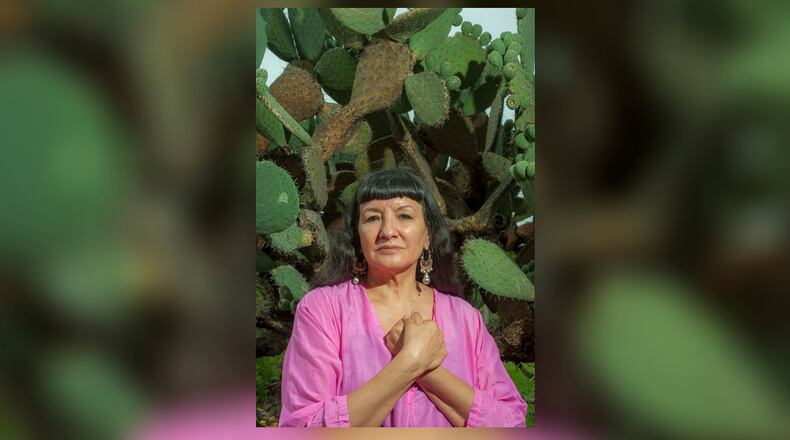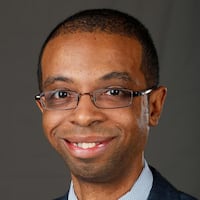“This award is so meaningful because the heroes in my life have been the peacemakers,” says Cisneros, 68. “At my age, it is meaningful to be awarded something for my spirit work. I’m on a spiritual path and very aware of it at my age. For the past 30 years of my life, I’ve tried conscientiously to work with my family, friends and the organizations I’ve created as someone who can unite.”
Born in Chicago in 1954, her work explores Latinx identity, female sexuality and artistry, and the life of the working class. Her awards and recognitions include NEA fellowships in poetry and fiction, a MacArthur Fellowship, the Fuller Award for Lifetime Achievement in Literature, and the National Medal of Arts.
“Sandra Cisneros is the embodiment of the Dayton Literary Peace Prize Foundation’s values of peace and understanding, and her empathetic, perceptive voice is needed now more than ever,” says Nicholas A. Raines, executive director of the Dayton Literary Peace Prize Foundation.
Cisneros joins an esteemed list of distinguished honorees including Geraldine Brooks (2010), Tim O’Brien (2012), Gloria Steinem (2015), Margaret Atwood (2020/2021) and Wil Haygood (2022) among others.
“Sandra has supported women, particularly Chicana women, and writes from her soul,” adds Sharon Rab, founder of the Dayton Literary Peace Prize Foundation. “She’s the perfect model for how we can find peace within ourselves and is also a champion of new writers. She has all the characteristics of a person who wants to spread the word, and in her case, the word is how we get along with one another and how we understand ourselves better.”
Credit: RANDI BAIRD
Credit: RANDI BAIRD
Cisneros will receive the Holbrooke Award at a private gala on Sunday at the Schuster Center. Named in honor of the U.S. diplomat who brokered the 1995 Dayton Peace Accords, the Holbrooke Award is annually given to a writer whose body of work fosters peace and global understanding. She is grateful for this recognition having lived in Sarajevo and being shaped personally and professionally from the repercussions of the Bosnian War.
“My life was changed with the Bosnian War, and I have a very close relationship with the city, its people and a woman who is like a sister to me,” says Cisneros. “When I was 28, I was illuminated by the Bosnian conflict, and it has affected me ever since ... I witnessed a war’s effects personally with the 40-year friendship of my hermana-amiga from Sarajevo. And what I learned was this; the casualties of a war are not simply those killed in warfare. Civilians and unborn generations ever after suffer with the shrapnel of that conflict embedded in their psyche like hidden landmines.”
In addition, she feels diversity and representation in storytelling is essential to finding common ground within humanity.
“It’s important for us to plant seeds for people to recognize themselves in communities that are most unlike themselves,” says Cisneros. “When we can see ourselves in people that are most unlike ourselves — whether it’s gender, race, economics or spirituality — that is a way for us to become more human with one another. To recognize yourself in The Other is to treat someone in a way that is more humane and peaceful. When I started writing my first book from some place of love, it has taught me that whatever we create with love — on behalf of those we love with no personal agenda — will always turn out well.”
Fiction and nonfiction winners
Every year, the Dayton Literary Peace Prize honors one fiction and one nonfiction author whose work advances peace with a $10,000 cash prize.
The aforementioned Brooks, the 2010 Holbrooke Award winner and Pulitzer Prize-winning author of “March,” is the winner of this year’s fiction prize for “Horse.” Told through separate time periods, her novel centers on the famous American racehorse, Lexington, while also exploring a myriad of themes such as the environmental crisis, excessive police force, racial and sexual inequality, and American slavery.
“Geraldine is an astounding writer and journalist,” says Rab. “‘Horse’ has captured the hearts of America. It’s a spectacular book.”
The fiction finalists were: “Anthem” by Noah Hawley; “The Immortal King Rao” by Vauhini Vara; “Didn’t Nobody Give a S--- What Happened to Carlotta” by James Hannaham; “The Light Pirate” by Lily Brooks-Dalton, and “Mecca” by Susan Straight. Brooks-Dalton is the fiction runner-up.
Credit: MARVIN JOSEPH
Credit: MARVIN JOSEPH
Washington Post reporters Robert Samuels and Toluse Olorunnipa are the nonfiction winners for “His Name is George Floyd.” Conducting more than 400 interviews, the duo notably examined George Floyd’s life through his battles with the justice system and police.
“When I read the book, I honestly had to stop reading it multiple times because I was crying,” says Rab. “George Floyd loved people no matter how well he knew them. He reacted to people with a heartfelt response.”
The nonfiction finalists were: “American Midnight” by Adam Hochschild; “Asian American Histories of the United States” by Catherine Ceniza Choy; “Ma and Me” by Putsata Reang; “The Treeline” by Ben Rawlence; and “Zarifa” by Zarifa Ghafari with Hannah Lucinda Smith. Hochschild is the nonfiction runner-up.
Credit: Lori Hoffman/Bloomberg
Credit: Lori Hoffman/Bloomberg
Engaging conversation
On Saturday, Brooks, Samuels, Olorunnipa, Brooks-Dalton, and Hochschild will participate in a discussion of their works. The panel will be moderated by Gilbert King, Dayton Literary Peace Prize and Pulitzer Prize-winning author of “Devil in the Grove.”
The conversation will be followed by an interview with Cisneros. She will be interviewed by Carla Hayden, 14th Librarian of Congress, who is the first woman and first African American to lead the national library.
“It is an honor to have Carla coming to Dayton,” says Rab. “We are so delighted that she agreed to participate.”
Credit: AP
Credit: AP
Looking ahead to her conversation with Hayden, Cisneros is eager to share her career insights while elevating the exchange to a broader appeal for peace.
“It’s a very dark time with wars that have erupted and there is a great deal of grief in the world. So, what can we do about that?” she says. “I think we can be peaceful with one another. The way to peace is being peace, which means being peaceful with everyone you talk to. It doesn’t mean holding up a sign or sending a message on social media but doing the real work of peacemaking. How can we ask for world peace if we’re not at peace with everyone we come in contact with in our own personal lives?”
HOW TO GO
What: Dayton Literary Peace Prize: A Conversation with the Authors
Where: Victoria Theatre, 138 N. Main St., Dayton
When: 4 p.m. Saturday, Nov. 11. Doors open at 3 p.m.
Tickets: $25-$150
More info: Call 937-228-3630 or visit daytonlive.org
About the Author





